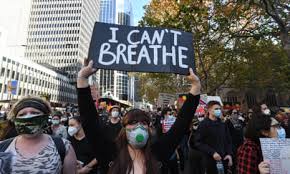We Don’t Breathe the Same Air (GS Paper 3, Environment)

Context:
- The poor bear the brunt of environmental pollution, and it's time for policymakers to address this issue seriously.
Challenges in Addressing Environmental Problems
Lack of Political Will:
-
- Politicians tend to focus on issues like infrastructure development, job creation, and boosting global prestige rather than addressing fundamental environmental concerns like clean air and water.
- Environmental agendas are sidelined despite their urgent importance to public health and quality of life.
Overreliance on Market Solutions:
-
- Solutions like air purifiers, private transport, and remote work serve the affluent but fail to address the systemic causes of pollution.
- The "bubble-living" model, where individuals insulate themselves from pollution, only exacerbates inequalities instead of offering real solutions for all.
Absence of Universal Solutions:
-
- Pollution infiltrates every aspect of daily life, making individual attempts to insulate oneself insufficient.
- Unlike the COVID-19 pandemic, where vaccines provided hope, air pollution lacks a simple fix or quick remedy.
Inequality in Pollution Burden
Disproportionate Impact on the Poor:
-
- Pollution from activities like stubble burning, garbage burning, and coal-fired stoves is critical to the livelihoods of the poor and marginalized.
- These communities are heavily reliant on such activities for survival.
- The poor often lack the financial resources to shield themselves from pollution, making them more vulnerable to its harmful effects.
Blame Game:
-
- The affluent class tends to shift the blame for pollution onto vulnerable groups like farmers and construction workers without addressing the root causes of pollution.
- Policies such as bans on stubble burning or construction often fail to consider the socio-economic consequences for farmers and daily wage workers, further deepening the inequality.
Technology and Resource Divide:
-
- The COVID-19 pandemic highlighted the inequality in access to resources. Remote work and online learning, while beneficial for some, disproportionately affect those without access to technology, the internet, or adequate devices.
- Poor internet access and lack of digital devices exacerbate the educational and employment challenges faced by lower-income groups, deepening social and economic divides.
Way Forward
A National Plan for All:
-
- A comprehensive national action plan is needed that includes everyone, with a focus on those who suffer most.
- The plan should require collective sacrifices from all sections of society, particularly the affluent, who have the resources to make these changes.
- The action plan should address environmental issues in a way that acknowledges and mitigates the impact on the marginalized.
Incentivizing the Poor:
-
- The poor and marginalized should not be punished for their role in pollution but incentivized with material resources to adopt sustainable practices.
- Solutions should be designed with compassion, providing financial support, technological access, and opportunities for sustainable livelihood alternatives to those who are most affected.
Learning from Global Arguments:
-
- Just as the Global South defends its right to development against the interests of developed nations, India should adopt a similar ethical stance domestically.
- Environmental policies must reflect the social and economic realities of its diverse population.
Ethical and Compassionate Governance:
-
- Policy-making must account for the socio-economic inequalities in society.
- Environmental solutions must be framed with a commitment to fairness, ensuring that no group is disproportionately burdened or left behind.
Conclusion
- As we celebrate the 75th year of India’s Constitution, we must acknowledge that air pollution and other environmental issues do not recognize social or economic boundaries.
- These problems affect everyone who shares the same environment.
- The time to act is now—policymakers must recognize that true progress can only be achieved when environmental solutions are inclusive, compassionate, and equitable.


